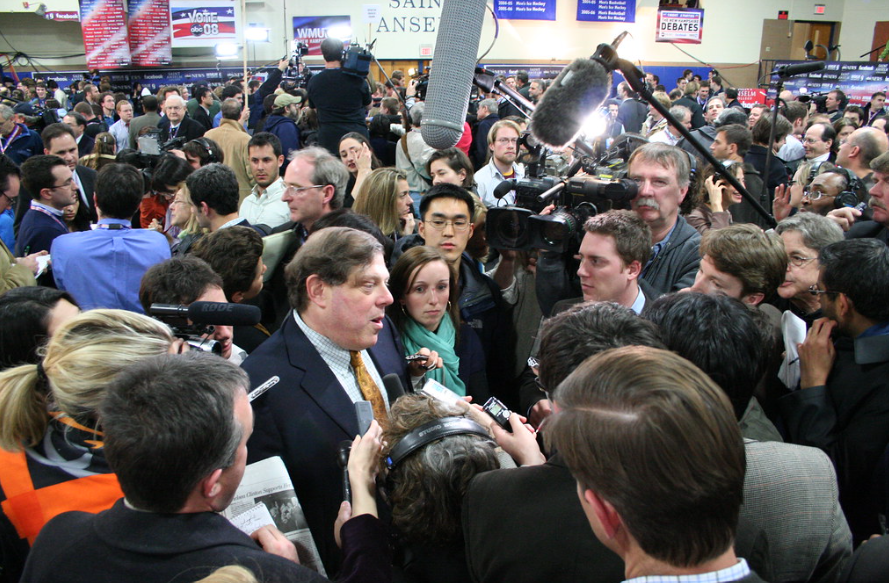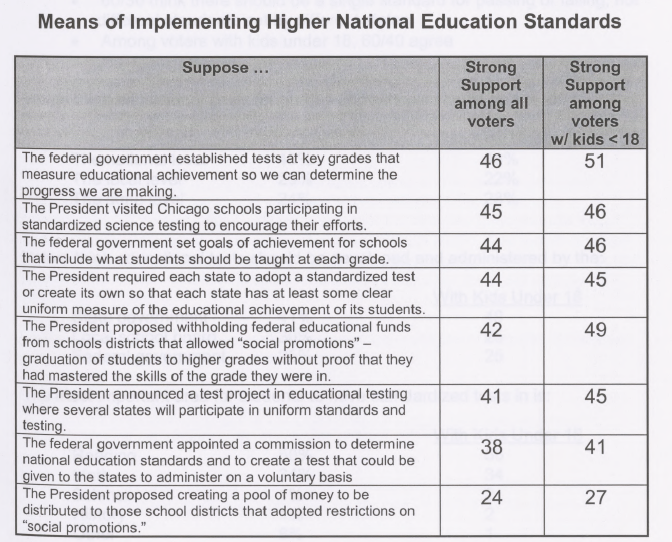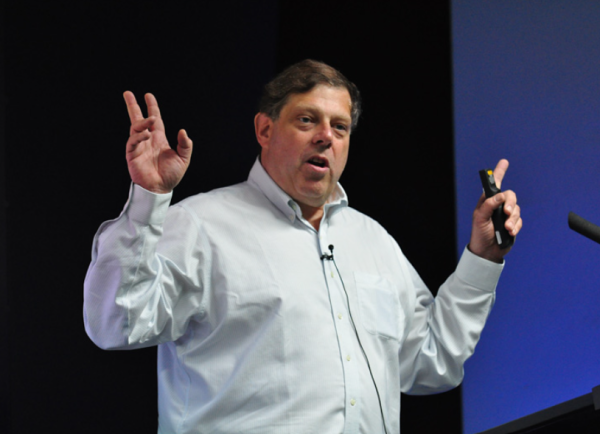Mark J. Penn (b. January 15, 1954) began his long career in polling earlier than most, conducting his first polls among his classmates at New York’s prestigious Horace Mann School. While studying political science at Harvard University, he started his first polling firm with dormmate Doug Shoen. After graduation, the pair opened an office in New York City and soon began polling for Ed Koch.
Penn Shoen was one of the first organizations to utilize a “microcomputer” to quickly compile polling data, giving them a speed advantage over other firms. The firm’s clientele quickly expanded beyond the U.S., conducting polls and offering messaging strategy for Luis Herrera Campins’ presidential campaign in Venezuela in 1978, just two years after Penn’s college graduation. The company continued to expand through the next two decades, conducting survey research for commercial and political clientele, including AT&T, Texaco, and Menachem Begin’s 1981 campaign for prime minister in Israel.
In 1995 Penn’s company, with the addition of Michael Berland now Penn Schoen Berland, began consulting for Bill Clinton after the disastrous 1992 midterms. Republican strategist Dick Morris, friend to both Clinton and Penn, brought the two together in pursuit of a program of “Third Way” politics, incorporating traditionally Republican and Democratic policy solutions and carefully tested centrist messaging.

Polling was central to not only Clinton’s communications, but all aspects of his public presentation, even, famously, his choice of vacation spots. Penn also identified voter profiles for targeted messaging based on more than the standard age and income demographics. His “soccer mom” swing voter became a standard part of the political lexicon.
Most importantly, polls informed the administration’s policy development. Perhaps more than any previous president, Clinton’s polling team under Mark Penn tested each detail of any policy proposal to determine the elements most palatable to the public. From an interview with Mark Penn by Michael Cornfield:

Online copy: Mark Penn interview transcript (part 2), s2348_s03_transcript_mark_penn_part2. Special Collections Research Center, The George Washington University.
The Mark Penn Mark Penn digital polling data collection and oral history at George Washington University Special Collection Research Center includes extensive examples of the sort of “issue of the day” polling Penn pursued. This table displays results from a poll meant to test public approval of different approaches to a national educational standards program.

After serving such a central role in Clinton’s second campaign and administration, Penn went on to poll for Hillary Clinton’s 2000 and 2006 NY Senate campaigns and her 2008 presidential bid, as well as Tony Blair’s third term as UK Labour Party leader. In more recent years, Penn became disenchanted with the Democratic Party and publicly criticized the Mueller Trump investigation and Democratic attempts to impeach Trump. He met with Trump to discuss his re-election campaign, but did not join the campaign as an advisor.
While continuing his work for political clients, Penn also worked in the corporate sector. He worked for Microsoft starting in the nineties, solidifying their reputation as a trusted company. In 2015, he left Microsoft to start his own private equity firm, The Stagwell Group, which focuses on the marketing industry. Most notably, Stagwell acquired The Harris Poll, the legacy of pollster Louis Harris, Kennedy’s pollster.
In 2010, Penn donated a portion of his personal collection of polls to establish the Society of Presidential Pollsters within George Washington University’s Graduate School of Political Management. The Society is devoted to the examination of the unique and private relationships that presidents have had with their pollsters since Franklin Delano Roosevelt. Presidential and campaign polling—the questions asked, the answers compiled, and the way in which that information is used in decision-making—paints an important picture of the history of American democracy. The Society is now known as The Mark Penn Presidential Pollsters Event and conducts polling with HarrisX on American democracy. Penn also donated his papers to the Special Collections Research Center at George Washington University. Polls found within these materials have been entered into iPoll under a joint project between Roper Center and the Special Collections Research Center.
View the Mark Penn digital polling data collection and oral history.
Image Credits:
https://www.flickr.com/photos/aspeninstitute/4780511052
https://www.flickr.com/photos/nicco/2171220744/
